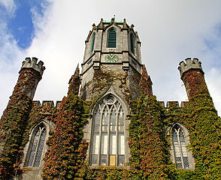CfP – Online Workshop:
‘Speculative Art and Spatial Justice’, NUI Galway,
Apr 16–17, 2021 (deadline Dec 30, 2020)
The greatest challenges of our time – from climate crisis, global migrations, income inequality to the recent COVID-19 pandemic – can be regarded as spatial issues. The geographies of globalization – the settlements, landscapes, infrastructures, networks, supply chains, markets, and factories which make up our world – are produced unevenly in a fashion which entrenches poverty and exacerbates planetary pollution (Harvey 2000). As a result of geopolitical interventions, a great number of people have been deprived of their rights to both public and private spaces, whereas increased mobility in the developed world has undermined the established concepts of dwelling and spatial rootedness.
Addressing the overlapping issues of social oppression and spatial injustice (Soja 2010) – such as exploitation of natural resources, unsustainable urbanisation, aggressive agriculture – demands a radical transformation of local, national and global spaces. Energy transitions, investments in public infrastructures and services, provisioning of safe and affordable housing, and restoration of green and blue spaces are just some of the changes we need to see. Emergency governmental responses to COVID-19 initiated rapid and radical societal changes that would have previously been unimaginable to many.
Taking the pandemic response as one of the examples of a possible paradigm shift in terms of the kind of political action that can be imagined, this workshop emphasises the vital role of speculative fiction, film and visual art in shaping the physical world. Amid the global pandemic, and at the doorstep of climate breakdown, how can imaginative practices address and rectify spatial injustice?
Speculative literature and art – understood broadly here as a category encompassing science fiction, fantasy, eco-fiction, utopia and dystopia – have long been concerned with imagining space differently. In depicting future or alternative worlds, artists can explore the spatial dynamics of oppression, exploitation and despoliation under today’s global capitalism. Yet, is it possible to go from cultural representation to societal transformation? Can our “reflection upon the virtual guide our understanding of the real (or actual)”, as Henri Lefebvre suggested in his seminal work The Production of Space (1974)? How can we see the spaces of speculative art as potential shapers of healthier and fairer environments? Conversely, how do these artworks deny visions and narratives which erase the spatial abuses of our past, present and future?
This workshop invites papers from the fields of science fiction, utopian studies, ecocriticism, cultural geography, environmental humanities, environmental history, and any other related, new or interdisciplinary fields. Topics may include, but are not limited to, the following:
-Spatial justice
-Gender and space
-Eco-fiction and nature writing
-Utopian and dystopian narratives
-Commodification and enclosures
-Architecture and the built environment
-Spatial dichotomies: urban-rural, centre-periphery, North-South, East-West
-Place-making, dwelling, belonging, and identity
-Corporeality and the human body in/as space
-Environmental destruction, pollution, and erasure
-Borders and migration
-Legacies of colonialism
-Global tourism and spatial fetishism
Please submit a proposal including the title and the short abstract (250 words) for your presentation (10-15min) to sasj2021@gmail.com not later than December 30, 2020. Panels of 3-4 presentations will be followed by 30-45-minute discussions where all participants are invited to join. The workshop will take place on April 16-17, 2021 in an online format. Participants will be notified of the acceptance of their proposals by January 30, 2021.
The event is organised by Ashley Cahillane (School of English and Creative Arts) and Maša Uzelac (School of Languages, Literatures & Cultures), under guidance of Dr Tina-Karen Pusse (Head of School, LLC) and hosted by the School of English and Creative Arts and the School of Languages, Literatures & Cultures.
« Previous Article Next Article »



